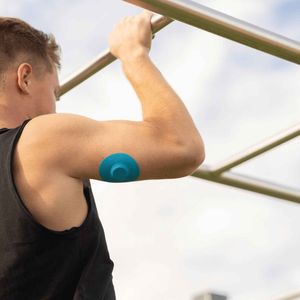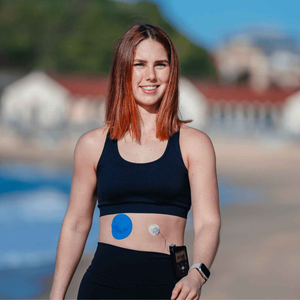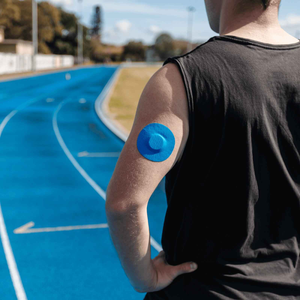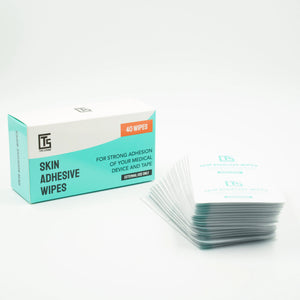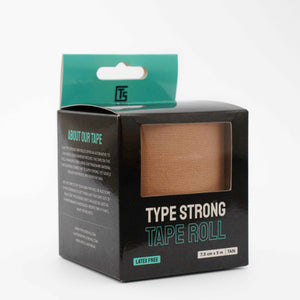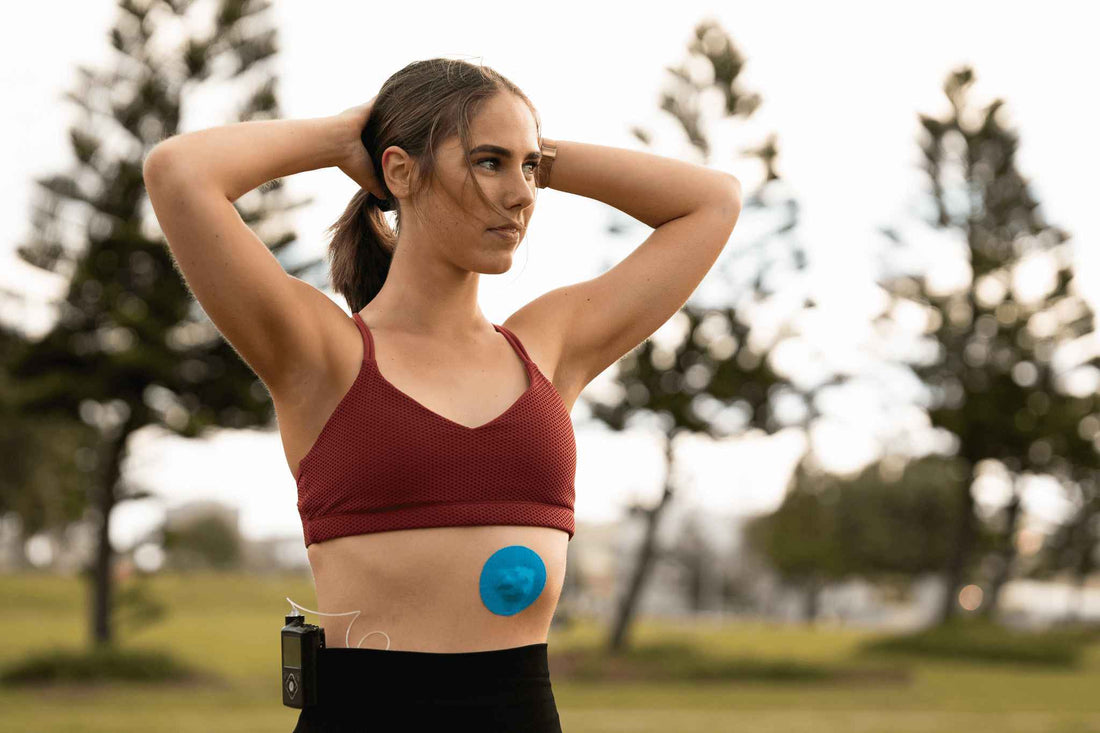Living with Type 1 & 2 diabetes involves careful attention to blood sugar levels to maintain good health. Fortunately, various tools and products are designed to assist in this journey, and one such option is the Freestyle Libre Continuous Glucose Monitoring System.
You can find additional information right here about Freestyle Libre System
As we explore this system, we'll break down its PROS and CONS to help you decide which Freestyle Libre sensor might be the right fit for you. Let's dive into the details to understand better how this tool can contribute to your diabetes management.
PROS AND CONS OF FREESTYLE LIBRE 1 (14 DAYS)
PROS
Farewell to Finger Pokes
Replacing those finger pokes with scanning has been a game-changer. It's painless, but if there's any doubt about accuracy, a quick double-check with a finger poke is recommended, especially for those relying on insulin. Remember, there's a 15-minute delay between blood poke and interstitial scan readings, but they usually align closely.
Sleep-Inducing Convenience
Say goodbye to disruptive middle-of-the-night finger pokes! Now, a simple scan takes over, allowing for uninterrupted and more confident sleep.
Easy Application, Even Solo
Applying the continuous glucose monitor is a breeze, even when you do it yourself. Following the manufacturer's suggestion to keep your arm at your side during application, it avoids adhesive pulling, making it almost unnoticeable when worn.
Empowered Self-Management
Having real-time visibility into glucose levels has been a game-changer for self-management. Watching those numbers in real time prompts adjustments that lead to better control.
Handy Mobile Integration
Using a mobile phone for scanning adds an extra layer of convenience.
Sneakily Swift Monitoring
The scanning process is so quick that no one notices you checking your blood sugars. It's discreet and efficient, making it a seamless part of your routine.
Set-and-Forget Reminders
Setting reminders for regular scans ensures you never miss a beat. The 8-hour reminder becomes a lifesaver, preventing any data loss and helping in maintaining a comprehensive record.
Can be Personalised with Stickers
Embrace the inner child. You can add stickers or patches to your sensor. It's not just a monitor; it's become a quirky conversation starter.
CONS
Choosing the Right Spot for Attachment
It is approved for use only on the back of the arm, which can be inconvenient for those who sleep on that arm.
Insurance Challenges
Many insurance or government rebates only cover these devices if the user is on insulin.
Despite personal affordability, coverage is limited, making it crucial for users to explore options and navigate insurance requirements.
Risks of Damage and Dislodging
Sensors are susceptible to getting caught on objects, such as bra straps or doorways, potentially leading to unintentional removal.
Here’s our tips to on how to protect your sensor
Prescription Requirements and International Variances
Prescription is needed in some countries, adding an extra step to acquire the device.
Lack of cross-country compatibility; what works in one country may not apply to another.
Limitations During Certain Tests
Interference with MRI and CT scans and untested compatibility with professional TENS units raises concerns about the device's practicality in specific medical situations.
Cost Considerations
Continuous glucose monitors are relatively expensive, ranging from 89 to 140 AUD every two weeks without insurance coverage.
Affordability concerns may impact the long-term viability of using these devices.
Not Covered for Non-Insulin Users
Despite being potentially more cost-effective than traditional testing methods, continuous glucose monitors are often only covered if the user is on insulin.
Allergic Reactions and Rashes
Increasing reports of allergies and rashes caused by the adhesive attached to the sensor prompted users to seek alternative methods or modifications.
There is an urgent need for manufacturers like Abbott and Dexcom, to address this issue promptly.
Quality Control Issues
Instances of dead sensors out of the box highlight potential quality control concerns that manufacturers must address promptly.
Adhesion Challenges
Surprising reports of users having trouble keeping the sensors on, contrast with the difficulty some face in removing them after the recommended usage period.
Technology Glitches
Potential disruptions due to technology issues during routine maintenance updates, leading to crashes in associated apps and devices.
PROS AND CONS OF FREESTYLE 2
PROS
Painless Blood Glucose Monitoring
Just like Libre 1, Freestyle Libre 2 eliminates the need for fingersticks or blood samples, offering users a convenient and painless alternative.
Easy and At-Home Application
The sensor application process is straightforward, allowing users to apply it at home without professional assistance.
Convenient Glucose Trend Tracking
Users can effortlessly monitor glucose trends through a smartphone app or a dedicated reader, providing real-time insights into their health.
Waterproof Design for Versatile Wear
The sensor is designed to be waterproof, enabling users to wear it during activities like bathing or swimming in shallow water. The sensors boast water resistance with an IP rating of 27, capable of withstanding 3 feet of water for up to 30 minutes – making it a resilient partner for your active lifestyle.
User-Friendly Operation
The Libre 2 System's user-friendly app offers a wealth of information about your diabetes and overall health. Set alarms, track trends, and review glucose history – all from the convenience of your smartphone. The overall process is designed with user convenience in mind, making it accessible and manageable for individuals managing their glucose levels.
Ease of Use
The Freestyle Libre system is a breeze to use. No more fingersticks or complicated blood tests. The sensors are painless to apply. Just pop one on your arm, and you're good to go!
Accuracy
Accuracy is key, and the Freestyle Libre system delivers. With 1440 readings per day, you can trust the system's consistency to keep you well-informed and in control of your glucose levels. Notably, the system's accuracy is comparable to traditional blood sugar finger-prick readings, with only a minimal deviation percentage, ensuring reliable and precise monitoring of your diabetes management. An impressive 9.3% MARD value further underscores this accuracy, indicating that Freestyle Libre 2 glucose readings typically fall within 9.3% of an individual's actual blood glucose levels.
Lightweight Reader
Opt for the Libre 2 reader, and you'll enjoy the perk of a lightweight device at only 65 grams. Keep your glucose monitoring discreet and under control without anyone noticing.
Discreet Sensors
The sensors are small, discreet, and can be effortlessly scanned through clothing, adding a layer of convenience and privacy to your glucose monitoring routine.
Great for On-the-Go
With a lightweight reader and discrete sensors, the Freestyle Libre system is your ideal companion on the move. Take your glucose monitoring wherever you go for work, travel, or any other occasion.
CONS
Skin Irritation Alert
Some users may experience skin irritation at the application site when using the Libre 2 sensor. Awareness of this potential side effect is essential to make an informed decision about its usage.
Prescription Requirement
Freestyle Libre 2 is available only with a prescription. Consulting with your healthcare provider is crucial to determine if this device meets your glucose monitoring needs.
Test Strip Limitation
While the device supports traditional test strips, it's important to note that the Libre 2 Reader is compatible only with Freestyle Precision Neo Test Strips.
PROS AND CONS OF FREESTYLE 3
PROS
Fingerstick Freedom
Like the other versions, Freestyle Libre 3 eliminates the need for constant fingerstick checks, providing a more convenient and pain-free monitoring experience.
Compact Sensors
The system features miniature sensors, just the size of two Australian dollar coins, while delivering precise and reliable glucose readings, ensuring discreet and comfortable wear.
Extended Data Storage
Enjoy effortless data management with the ability to store up to 14 days worth of glucose level data. This extended storage duration simplifies tracking and analysis for more informed diabetes management.
Real-time Insight
Stay informed with glucose levels displayed every minute on your smart device. Freestyle 3 offers real-time insights, empowering users to make timely and informed decisions about their health.
Customise Alerts
Tailor the monitoring experience to your preferences with customise alerts. Freestyle 3 allows users to set personalised notifications, ensuring a personalised approach to glucose management.
Water-Resistant Design
Embrace an active lifestyle, worry-free. Freestyle 3's water-resistant design allows users to participate in water-related activities without compromising the accuracy of glucose readings.
User-Friendly Application
Navigate effortlessly through the user-friendly application interface. Freestyle 3 simplifies the monitoring process with an intuitive app, making it accessible to users of all ages and tech backgrounds.
Continuous Trend Analysis
Gain deeper insights into your glucose patterns with continuous trend analysis. Freestyle Libre 3 displays current glucose levels and tracks trends over time, providing valuable information for proactive diabetes management.
CONS
App Dependency
Functionality requires an app on a compatible smart device. Users should ensure device compatibility for seamless operation.
Exercise Impact on Adherence
Exercise intensity may influence sensor adherence. It's essential to be mindful of this factor for consistent and accurate monitoring during physical activity.
Temperature Sensitivity
The optimal functioning temperature lies between 2°C and 28°C. Consider environmental conditions to maintain the sensor's effectiveness.
Post-Placement Waiting Period
Allow 60 minutes post-sensor placement before checking glucose levels. This waiting period ensures accurate readings and proper sensor adherence.
Limited Compatibility
Check the compatibility of the Freestyle 3 app with different devices. Ensure that your preferred smart device is supported for a seamless user experience.
Storage and Transportation
Exercise caution in storing and transporting the device. Extreme temperatures and physical damage may impact the sensor's performance, so handle it carefully.
Sensor Replacement Timing
Plan sensor replacements strategically. Users must be aware of the sensor's lifespan and replace it promptly to maintain continuous and accurate glucose monitoring.
Routine Calibration
Freestyle 3 may not require calibration, but regular checks and adherence to manufacturer recommendations are crucial for optimal performance.
If you still find it challenging to decide on the ideal Freestyle Libre sensor for your needs, consider checking out the Freestyle Libre comparisons. This resource can provide valuable insights and comparisons between the different sensors, helping you make a more informed decision to your preferences and requirements.
CONCLUSION
Choosing the right continuous glucose monitoring system is essential for managing diabetes effectively. Whether it's Freestyle Libre 1, 2, or 3, each system has unique features and considerations. Your decision should align with your lifestyle and health needs.
Note: As of the moment, Freestyle Libre 3 is not yet available in Australia.
Considering the user-friendly aspects, technology, and potential challenges discussed here, your choice is personal. To improve your monitoring experience, try our CGM Adhesive Patches. They offer comfort and durability, ensuring your Freestyle Libre sensor stays secure during various activities. Enhance the reliability of your sensors and enjoy a worry-free monitoring journey – try our Freestyle Libre Adhesive Patches today!
| Disclaimer: The information presented on this blog is provided for general informational purposes only. It is not intended as a substitute for professional medical advice, diagnosis, or treatment. Reliance on any information provided by this blog is at your own risk, and we strongly recommend consulting with a qualified healthcare professional for individualised advice regarding your specific situation.
In addition, this blog may contain links to external sites or feature content from third parties. Please be aware that we do not undertake investigations or monitoring of these external links for accuracy, adequacy, validity, reliability, availability, or completeness. Consequently, we disclaim any liability or responsibility for the information contained therein. Users are encouraged to exercise their own judgement and discretion when accessing external content linked from this blog. |
